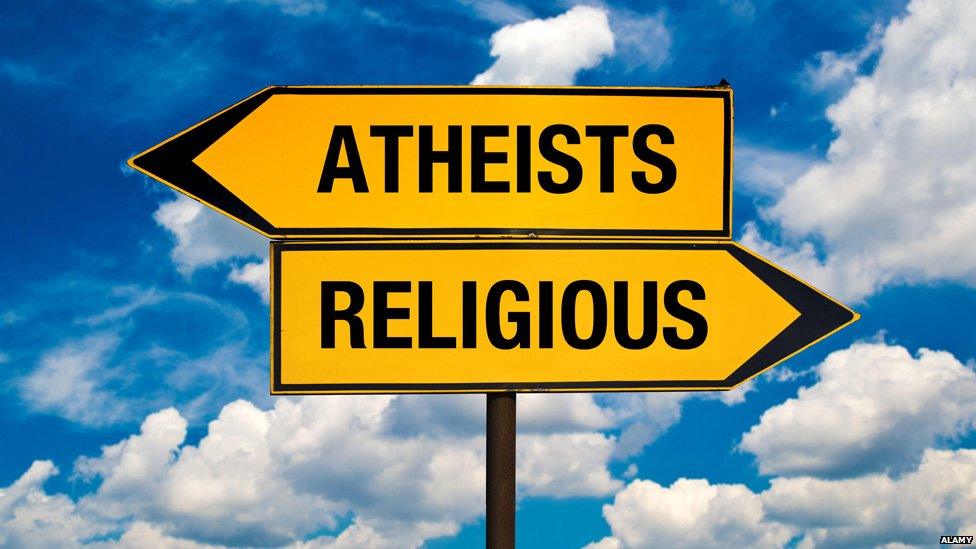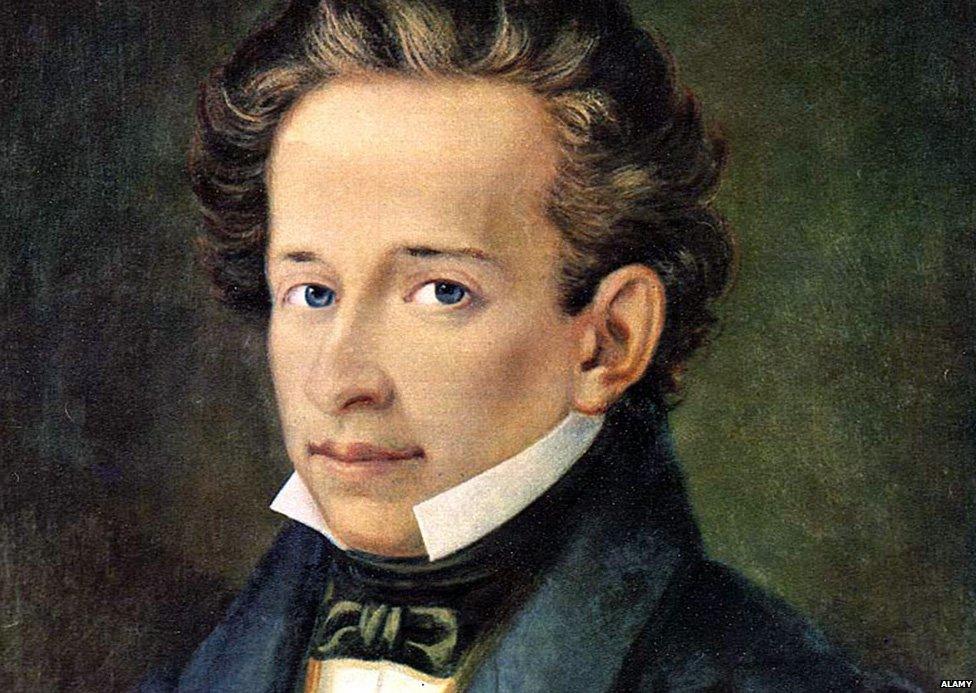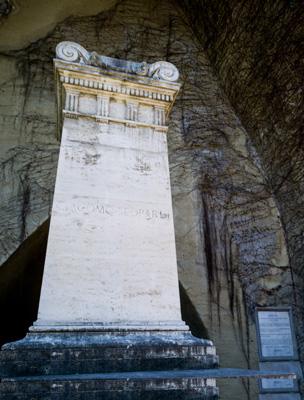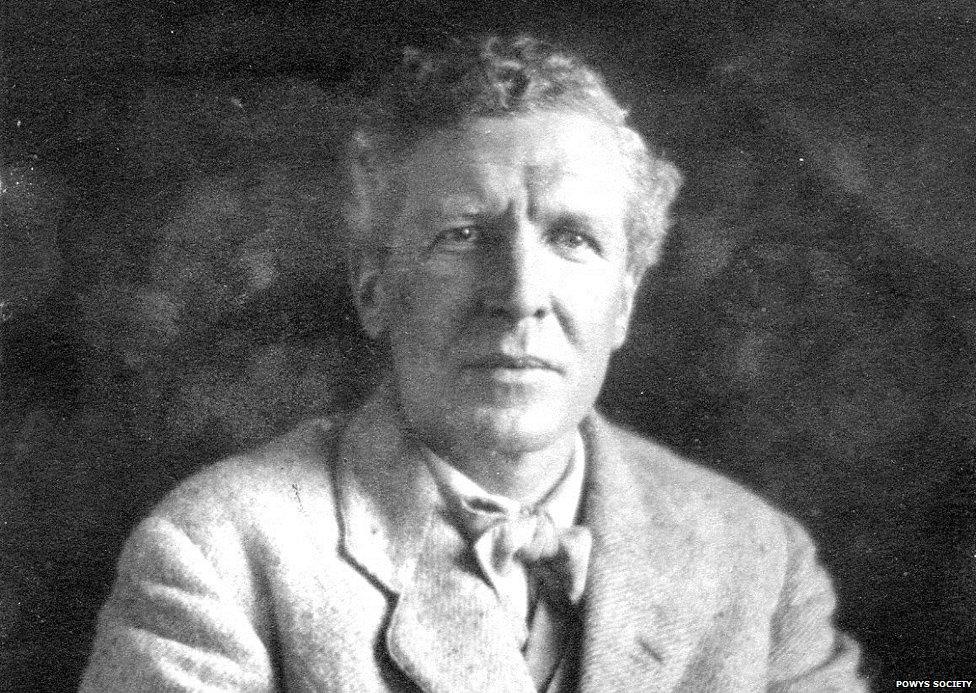A Point of View: Does atheism have to be anti-religious?
- Published

We tend to understand atheism as a war between religion and science - but in earlier times atheism was both more complex and more rich, says philosopher John Gray.
In recent years we've come to think of atheism as an evangelical creed not unlike Christianity. An atheist, we tend to assume, is someone who thinks science should be the basis of our beliefs and tries to convert others to this view of things. In the type of atheism that's making the most noise today, religion is a primitive theory of how the world works - an intellectual error without human value, which we'd be better without.
But this isn't the only kind of atheism. History shows that atheism can have a complexity that reaches well beyond our currently dominant version. Though many today seem unaware of the fact, by no means all atheists have wanted to convert others to unbelief. Some have actually been friendly to religion. Nor have atheists in the past always turned to science for inspiration. There have been many varieties of atheism. That this has been so shouldn't be surprising. In itself, atheism is a purely negative position.
An atheist - and here I speak as one myself - is anybody who doesn't rely on an idea of God. Of course there are different ideas of God, but in western cultures the deity is understood as a divine mind that is all-knowing, all-powerful and all-loving. Atheists reject this idea, or simply don't need it. But that's all they have in common. Atheism has gone with a wide diversity of world-views and values. Among many atheists who differ from the present crop, let's look at two in particular.
Consider the early 19th Century Italian Giacomo Leopardi. Known chiefly for his exquisite verse, Leopardi was also a highly original thinker, who in his Zibaldone - a "hodge-podge of thoughts", some 4,500 handwritten pages long - produced a penetrating analysis of modern life. Brought up in a small hill-town to be a good Catholic by his father, an old-fashioned country nobleman who still wore a sword, Leopardi became an atheist in his teens.
For Leopardi, the universe was made of matter that obeyed physical laws. Humans were animals that had come into the world and acquired self-awareness by chance. Writing before Darwin, he didn't acquire this view of things from science, but from reading the classics and observing the life around him. Leopardi never renounced this uncompromising materialism. But at the same time he defended religion, which he regarded as an illusion that was necessary for human happiness.

Giacomo Leopardi 1798-1837

Born in Recanati, Italy to an aristocratic family
An early scholar, he mastered several languages and had written original works by the age of 16, external
Became a poet of renown in Italy, with works such as L'infinito and "A Silvia!"
Suffered poor health through his life and died aged 38

If the modern world rejected traditional faiths, Leopardi believed, it would only be to take up others that were more harmful. He was not particularly fond of Christianity, whose claim to be a revelation for all of humankind he believed had led to intolerance. "Man was happier before Christianity," he wrote, "than after it". But the alternative to Christianity, in modern times, was what he called "the barbarism of reason" - secular creeds like Jacobinism in revolutionary France, which aimed to remake the world by force. These political religions would be even more intolerant than Christianity, Leopardi believed, and if you consider the history of the 20th Century, he was surely right.
Leopardi favoured the Catholicism in which he'd been brought up as the best available illusion. But he didn't return to religion himself. He spent his short life - born in 1798, he died in 1837 - reading and writing, acquiring short-sightedness and a hunchback from spending so much time in his father's library. Sickly and poor most of the time, his principal human attachments were with a married woman and a male friend in whose house he died. He didn't share the illusions he believed were necessary to happiness, and much of his poetry has a melancholy tone. Yet he doesn't seem to have to been unhappy. His final hours were spent tranquilly dictating the closing lines of one of his most beautiful poems.

A quite different type of atheism was the driving force in the life of the essayist and novelist Llewelyn Powys. Born in 1884 as one of 11 children of a Somerset parson, two of whom - John Cowper Powys and Theodore Powys - also became well known writers, Llewelyn rejected the Christianity of his father with a fierce passion. Like Leopardi, he was a convinced materialist. Unlike Leopardi, he believed humankind would on the whole be better off if it renounced religion. But he didn't deny that religion contained something of value. "Sometimes, of an early Sunday morning," he wrote, "I would enter the old grey church to take the sacrament... And as I knelt with bowed head to partake of the beautiful, antique ritual I would try to conceive what inner secret the wild rumour held… I would feel half-inclined to believe also. Why not?"
As Powys saw it, the "wild rumour" of Christianity was like all religion - a response to the fact of mortality. For most of his adult life, he lived with death near at hand. In 1909, he learnt that he was suffering from tuberculosis. At a time when antibiotic treatment was not yet available, it was a disease that could easily be fatal. In fact Powys lived on another 30 years, never free of sickness, but determined to make the best of a life that would always be in danger.

Llewelyn Powys 1884-1939

Novelist and essayist, born in Dorset and lived at various points in Kenya, the US and Switzerland
Educated at Sherborne School and Corpus Christi College, Cambridge
Married writer Alyse Gregory in 1924
Struggled with tuberculosis for 30 years and eventually died from the condition

Entering a Swiss sanatorium in 1910 for just over a year, he used his time there to throw off the timid morality in which he had been reared. Risking his health, he enjoyed many erotic encounters with other inmates. In a diary he kept, he recorded a haemorrhage that almost killed him, marking the episode in his own blood. As he wrote later in a memoir of his illness: "Presently, with the pretty egotism of youth, I dipped my fountain pen into the basin at my bedside and scratched a red cross on my diary, a cross such as a tramp might have made who could not sign his name, and yet who wanted to record some important event in his wayfaring." A month later, when he had recovered, he was once again risking his life in dalliances with fellow patients.
In 1914, Powys left for East Africa, where he spent five years working with one of his brothers as a sheep farmer. The harsh realities of life in the bush fortified his brand of atheism. Writing after his return, he declared that Africa "laps up the life-blood of all the delicate illusions that have for so long danced before the eyes of men and made them happy. Truth alone is left alive. What was suspected in Europe is made plain here… the surface is everything, underneath is nothing". He wasn't disconcerted at this discovery. He was clear that human life had no intrinsic meaning or purpose, but that only made him all the more determined to savour the sensation of being alive. As a freelance writer he was never financially secure and often hard-up. But accompanied in later years by his devoted partner Alyse Gregory he travelled widely, visiting the West Indies, Palestine, America and Capri, among other places.
Powys chose to live as a hedonist. Always close to death, he aimed to heighten the sensation of life. He attached as much importance to the contemplation of landscape and wild animals as he did to sexual pleasure. His essays are full of images of natural beauty - a hare drinking from a small pond, fox cubs playing at dawn on the Dorset cliffs. A week before he died of a perforated ulcer in Switzerland in December 1939, he wrote to a friend: "I have had a happy life for half a century in sunshine."
The two atheists I've discussed were very different from one another. Where Leopardi accepted a godless universe with tranquil resignation, Powys embraced it with exultant joy. But for both of them, religion was much more than an outdated theory. If Leopardi believed religion of one sort or another was beneficial for human happiness, Powys valued religion as a kind of poetry, which fortified the human spirit in the face of death.
But each of these atheists was also very different from most of the unbelievers of recent years. The predominant strand of contemporary unbelief, which aims to convert the world to a scientific view of things, is only one way of living without an idea of God. It's worth looking back to other kinds of atheism, far richer and subtler than the version we're familiar with, that aren't just evangelical religion turned upside down.
We asked for your comments. Here is a selection of those received:
My late husband for most of his life regarded himself as an atheist. He was an engineer working in the defence field. Whilst he regarded his view as being the correct view, he always and without exception respected the right of others to hold a different view. Perhaps this attitude should be expressed in all religions and avoid many of the religion-based problems seen in the world today.
In his latter months (he died of cancer last year) he changed his view and found a faith - as often happens when people are seriously ill.
Stephanie, Aldershot
I'm an atheist, though I do like to believe that this isn't all to our life. Our body goes back to the earth/nutrients it came from when we die but what of our 'soul' or personality...? It boggles my mind thinking of our universe and what we still don't know.
Though I don't believe in any God and have no appreciation for people who twist the stories and teachings of their faith to hurt or abuse anything they don't agree with I'm not against religions. I'm always willing to listen and learn from other beliefs and views. Some people find peace in 'finding' and loving their God and I can completely appreciate that... I just can't stand the twisted sides of some religions where it is the 'human' aspect that spreads hate, intolerance and bigotry... I think everyone should be allowed to believe in what they want as long as their actions as a result harm no one.
Liz, UK
Please don't forget that you only hear the noisy atheists.
Atheism is an absence of belief, therefore there is nothing to say. I suspect the vast majority of atheists go about their daily lives never thinking of their atheism still less talking about it.
Brian, Ashbourne
As much as I don't like the label, "Atheism" is simply the rejection of a claim that god/gods exist. It's very important to note, this isn't the exact opposite position, which is to believe there isn't a god, or gods.
For this reason, Theism is a belief system, and Atheism is not.
Peter, Ireland
As a lifelong atheist, I think I was born without a God 'spot', I have no problem with the religious beliefs of others. In fact I sometimes envy them. It would be nice to believe there was something else after death.
Jan, Loanhead
It seems to me that being an atheist is an act of faith. The universe is vast, and humans inhabit just one small planet. To declare that nowhere out there are there beings that would match the definition of "god" must be an act of faith because it cannot be based on actual knowledge of the situation.
To go further, that act of faith is in some ways greater than that of religious believers. Christians, and probably the members of other religions, tell of having felt they are in contact with god. It may happen often or it may be rare, but it helps to sustain their faith. However, the atheist can never hope to be contacted by someone who says "You're right, I don't exist", and their faith will never receive that sustaining support.
Tony, Hampshire
A Point of View is broadcast on Fridays on Radio 4 at 20:50 BST and repeated Sundays 08:50 BST
Subscribe to the BBC News Magazine's email newsletter to get articles sent to your inbox.